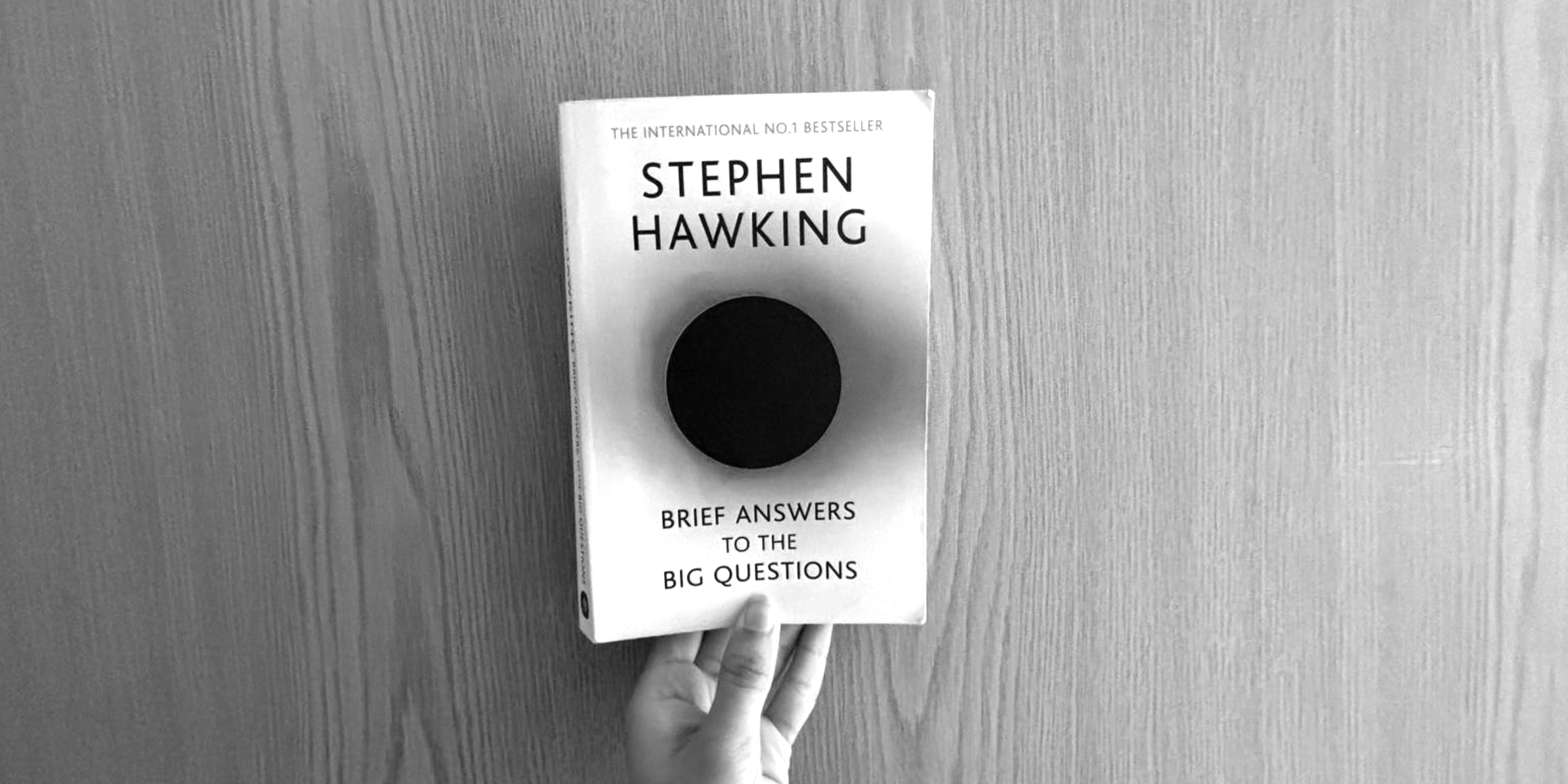Book Review: Brief Answers to the Big Questions

What is it about?
"Brief Answers to the Big Questions" by Stephen Hawking is a thought-provoking book that explores some of the most complex questions about the universe, our existence, and the future of humanity. In this book, Stephen Hawking provides insights into ten of the most fundamental questions that have puzzled scientists, philosophers, and thinkers for centuries. The book doesn't just offer direct answers; instead, it encourages readers to think more deeply about these topics and to consider the possibilities that lie ahead.
The book was completed after Hawking's death using his extensive personal archive. It was put together with the help of his academic colleagues and family, who worked to ensure that his final insights and ideas were shared with the world.
Why it appealed to me?
I was intrigued by the big questions the book tackles and fascinated by how great minds, like Stephen Hawking's, approach these profound topics. When I think about my own thoughts throughout the day, most of them revolve around everyday tasks—what meetings I have, what tasks need to be done, when I'll go to the gym, or what's for dinner. These thoughts might be useful to my colleagues or family, but they aren't groundbreaking.
What drew me to this book was the chance to peek into Stephen Hawking's thought process. I wanted to understand how someone like him, who faced so many personal challenges and disabilities, could still focus on such profound questions and push the boundaries of human knowledge. I imagined he wasn't bogged down by the mundane chores of daily life as much as we are. His ability to answer these deep questions, to think outside the box, and to challenge the norms is what inspired me to dive into this book.
Reading this book reminded me of the importance of looking beyond our day-to-day thoughts. It's essential to step back and ponder these big questions because it puts our lives into perspective. It makes us realise how small our existence is in the grand scheme of the universe, which can be quite liberating. It also helps unload the everyday stress we carry by shifting our focus to the bigger picture.
The book covers a wide range of fascinating subjects, such as whether God exists, how the universe began, the mysteries of black holes, the potential for time travel, and the possibility of life on other planets. Each chapter is easy to understand and packed with interesting insights that combine scientific knowledge with Hawking's personal thoughts and perspectives. His unique ability to explain complex ideas in a way that anyone can grasp made this book not just informative, but truly engaging and inspiring.

Should you read it?
If you are someone who is fascinated by questions like whether there’s life beyond Earth, how the universe began, or if time travel could ever be possible, then this book is definitely worth reading. For instance, Stephen Hawking talks about why humans might need to live on other planets one day. He explains that Earth won’t last forever due to reasons like climate change or a potential asteroid impact—so exploring other planets could be key to the survival of humanity. He also breaks down the story of the Big Bang in a way that's easy to grasp, describing how our universe started from a tiny point that exploded outwards to create everything we see today. When discussing black holes, Hawking doesn’t just explain what they are; he shares exciting theories about how they could be gateways to other parts of the universe or even to entirely different universes! It’s like imagining a hidden door in space that could take you somewhere completely new.
Cool right? If your answer is a big YES, then you know this book is your next read. 😄
The sense of wonder about the unknown would keep you engaged in the book.

However, I must warn you - the book can get quite scientific at times. Hawking, being one of the greatest physicists of the era, does delve into advanced concepts like quantum mechanics and the nature of spacetime. If you’re not familiar with these topics or don’t have a background in science, some sections might be challenging to follow.
But don’t let that stop you! Even if you don’t get all the details, the main ideas are presented in a way that’s easy to follow and really gets you thinking. Hawking's ability to simplify complex theories and his engaging style makes the book enjoyable for anyone interested in understanding more about the universe. So, if you're ready to challenge your thinking and explore some of the biggest questions out there, this book is definitely worth picking up.

